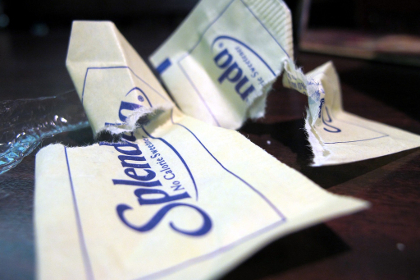
Splenda Hires Monsanto’s PR Firm
Notorious PR firm Ketchum made headlines earlier this year for creating a new branch dedicated to driving brands with a natural and organic focus.
The move was ironic, to say the least, since Ketchum works closely with Monsanto and the biotech industry to promote genetically engineered (GE) crops and downplay the concerns surrounding genetically modified organisms (GMOs).
September 7, 2016 | Source: Mercola.com | by Dr. Joseph Mercola
Notorious PR firm Ketchum made headlines earlier this year for creating a new branch dedicated to driving brands with a natural and organic focus.
The move was ironic, to say the least, since Ketchum works closely with Monsanto and the biotech industry to promote genetically engineered (GE) crops and downplay the concerns surrounding genetically modified organisms (GMOs).1
For starters, Ketchum created GMO Answers, which works on behalf of the Council for Biotechnology Information to improve the public image of GMOs.
They've been known to promote positive GMO coverage using online social media monitoring, i.e., creating fake internet personas who try to steer social media conversations according to their own agendas.
They've even targeted children via the corporate front group U.S. Farmers & Ranchers Alliance. This Ketchum-run alliance teamed up with Monsanto to produce curriculum for students in grades 9 to 12, and tweeted about a chat on "incorporating ag into your classroom."2
The latest company to hire Ketchum as its PR AOR (agency of record) is Heartland Food Products Group for its artificial sweetener Splenda. Heartland acquired Spenda from McNeil Nutritionals, a subsidiary of Johnson & Johnson, in 2015.3
Disaster PR Expert Ketchum to Take on Splenda
Americans are becoming increasingly wary of artificial sweeteners, and Splenda, in particular, took a hit following research from the Ramazzini Institute, which linked the popular sugar alternative to cancer, specifically leukemia.
The findings were first presented at a London cancer conference in 2012 and prompted The Center for Science in the Public Interest (CSPI) to downgrade Splenda from its "safe" category to one of "caution."
In 2016, the study was published in a peer-reviewed journal,4 the International Journal of Occupational and Environmental Health, prompting CSPI to downgrade Splenda for a second time, this time from "caution" to "avoid."
Splenda's reputation could clearly use a boost, and who better to do so than Ketchum, a "disaster PR expert" that has done work for a number of politicians and world leaders with image problems, as well as corrupt governments around the world?
Ketchum's first assignment will be the new product launch of Splenda Naturals, which are due out in October 2016. Splenda has tried to align itself with natural products before.
They previously used the slogan "Made from sugar, so it tastes like sugar," which is misleading since Splenda is not natural nor does it contain elements of natural sugar.
Partnering with Ketchum shows that Splenda's makers are going to pull out all the stops to make Americans believe Splenda is safe, even as the research says otherwise.
Splenda May Increase Cancer in Mice
Ramazzini Institute researchers fed mice Splenda beginning prenatally and continuing for their entire lifespan. The mice were fed varying concentrations of the artificial sweetener: 0 ppm (parts per million); 500 ppm; 2,000 ppm; 8,000 ppm or 16,000 ppm.
A significant increase in cancerous tumors was seen among male mice, and the risk increased along with the dose. The risk of leukemia in male mice also significantly increased, especially at Splenda doses of 2,000 ppm to 16,000 ppm.5 According to the study:
"These findings do not support previous data that sucralose is biologically inert. More studies are necessary to show the safety of sucralose, including new and more adequate carcinogenic bioassay on rats.
Considering that millions of people are likely exposed, follow-up studies are urgent."
